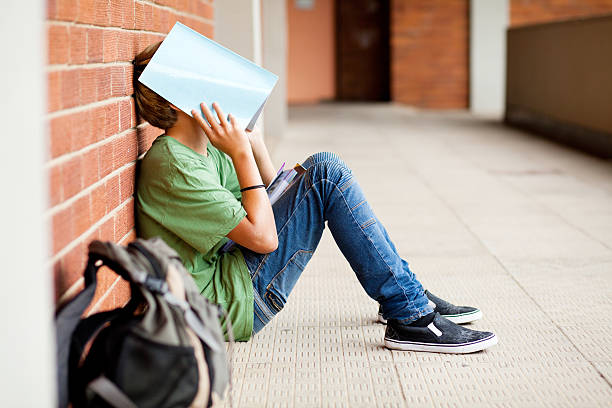Academic pressure refers to the stress children feel to perform well in school. In London, this pressure is intensified by competitive environments and high expectations from schools and parents.
Children in the capital face constant evaluations, tests, and assessments. Many students begin feeling the weight of expectations from early primary school, leading to anxiety and fear of failure.
Urban schooling often involves ranking, comparison, and limited places in elite institutions. This creates a culture where performance becomes more important than the process of learning and discovery.
The presence of grammar schools and league tables further amplifies performance-based stress. Even very young children are now being coached for exams and interviews from an early age.
The Role of Parents in Academic Expectations
Many London parents, especially those with professional backgrounds, feel pressure themselves. They worry that without academic success, their children won’t succeed in such a competitive society.
This parental stress is passed on to the children, often unintentionally. Kids may begin to associate love and approval with grades and accomplishments rather than effort or passion.
Some parents invest heavily in tutoring and extracurriculars to ensure their children “keep up.” This often reduces free time and increases burnout among even the most enthusiastic learners.
Though most parents mean well, excessive focus on academic results can limit a child’s self-expression, independence, and overall mental well-being in the long run.
The Impact of Testing Culture
London’s education system relies heavily on exams and standardized testing. These tests are used for selection, placement, and often reflect school performance in league tables.
The pressure to perform well in SATs, GCSEs, and A-levels begins years before students sit these exams. Many children report sleepless nights and nervous breakdowns during exam season.
A strong focus on results can overshadow creativity and critical thinking. Schools often prioritize test skills over a broad, enriching curriculum due to these systemic demands.
Tests may not always reflect intelligence or potential. Students with learning differences or anxiety often underperform, even when they are highly capable in non-academic settings.
Peer Pressure and Competition
In high-performing London schools, peer pressure adds to academic stress. Children constantly compare scores, achievements, and abilities, which can harm self-esteem and motivation.
Friendships are sometimes strained by unhealthy competition. Students may avoid asking for help due to fear of looking weak, contributing to isolation and emotional distress.
Some students engage in unhealthy habits to meet unrealistic expectations. These may include skipping meals, sleeping less, or turning to stimulants to stay awake during long study hours.
The atmosphere of competition makes it harder for students to enjoy learning. It transforms education into a race rather than a journey of personal and intellectual growth.
Mental Health Concerns
The growing academic pressure has led to a mental health crisis among London’s youth. Anxiety, depression, and burnout are increasingly reported by students at even primary levels.
Child psychologists note a rise in therapy sessions related to school stress. Academic challenges are often at the heart of young clients’ emotional and behavioral issues.
Students often feel shame if they cannot meet high academic standards. This self-criticism contributes to low self-worth and sometimes leads to serious emotional and social withdrawal.
Ignoring mental health for academic performance can have long-term consequences. Students may carry stress patterns into adulthood, affecting relationships, careers, and personal development.
Inequality in Educational Pressure
Not all children in London experience academic pressure equally. Students from disadvantaged backgrounds face different, yet equally intense, educational challenges that add pressure.
They often lack access to private tutoring or resources. These inequalities make it harder to compete with peers from wealthier families who can afford more educational support.
Schools in poorer boroughs may have fewer staff, larger classes, and less flexibility in teaching styles. This limits personal attention and makes learning more stressful for some students.
The achievement gap grows wider when pressure is applied unequally. It risks pushing vulnerable students out of the system altogether, rather than helping them succeed within it.
The Rise of Private Tutoring
Private tutoring is a booming industry in London. Parents spend thousands to give their children an edge, especially in preparation for the 11+ and selective school entrance exams.
Many students attend school during the day and tutoring sessions at night. This leaves them little time for rest, play, or personal development, increasing stress levels significantly.
Even average-performing students feel the need for tutors to “catch up.” This implies that the standard school curriculum is no longer seen as sufficient on its own.
While tutoring can help with confidence and skills, over-reliance often creates dependency. It may also lead to resentment toward learning and increased performance-related anxiety.
Teachers and the Pressure to Deliver
Teachers are under pressure to meet targets and demonstrate student progress. This institutional stress is often passed down to students through intense teaching methods and frequent assessments.
Many teachers report emotional exhaustion and frustration. They struggle to balance their passion for education with the demand for high grades and results-based evaluations.
The fear of underperformance can push teachers to “teach to the test.” This limits creativity in lessons and diminishes the joy of learning for both teachers and students.
When schools become pressure cookers, both educators and learners suffer. The focus shifts from nurturing minds to maintaining metrics, undermining the educational mission.
Social Media and Academic Comparison
Social media plays a growing role in academic stress. Students often share achievements, grades, or study habits online, creating constant comparison and performance pressure.
Seeing others post about awards, acceptances, or perfect grades can make children feel inadequate. It fosters a culture of perfectionism and fear of missing out.
Online academic influencers or “studygrams” glamorize constant studying. This trend misrepresents reality and promotes overwork, as students feel they must always be productive to succeed.
Digital spaces that were meant for fun and connection now contribute to stress. The lines between personal life and academic pressure continue to blur for London’s youth.
The Importance of Balance
Children need more than academic success to thrive. Balance between learning, play, rest, and creativity supports emotional health and long-term development in meaningful ways.
Over-scheduling robs children of opportunities to explore hobbies and interests. A well-rounded child is more likely to become a resilient and adaptable adult in future challenges.
Families and schools must value emotional intelligence, collaboration, and problem-solving, not just test results. These traits prepare students better for real-world success.
Creating downtime helps kids process and internalize what they’ve learned. It also encourages curiosity and a lifelong love of learning, which testing alone cannot instill.
Policy and School Reform Needs
Policymakers must address the roots of academic pressure. Reforms could include reducing standardised testing, encouraging creative learning, and investing in mental health support for students.
School inspectors should prioritize well-being alongside academic outcomes. A healthy school environment should focus on happiness, engagement, and student development—not just performance charts.
Public funding should support disadvantaged schools more equitably. Ensuring that all students receive fair opportunities can reduce stress caused by systemic academic competition.
Broad reform must involve collaboration between educators, parents, psychologists, and government. It’s time to shift from pressure-filled schooling to purpose-driven education for the next generation.
Supporting Students for a Healthier Future
Support systems are key in easing academic pressure. Mentoring, counseling, and peer support groups can provide safe spaces where students express concerns and seek help.
Schools should incorporate mindfulness, resilience training, and emotional literacy into their curriculum. Teaching students how to cope with pressure is as vital as academic subjects.
Parents must celebrate effort, not just results. Children thrive when they feel valued for who they are, not only for what they achieve academically.
A healthier future requires a collective shift in mindset. By valuing balance, individuality, and well-being, we can help London’s children succeed with confidence, not fear.












